Search Results
Showing results 381 to 400 of 401

Reusable Rockets
Source Institutions
This activity (located on page 3 of the PDF under GPS: Garbology Activity) is a full inquiry investigation into design optimization using recycled materials.
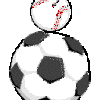
Two Ball Bounce
Source Institutions
This is a quick, yet dramatic activity/demonstration that introduces learners to the concept of energy transfer. A small ball is placed on top of a large ball and both are dropped together.
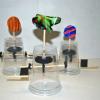
Micro Automata
Source Institutions
In this activity, learners build small animated toys that move.
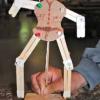
Lever Cowboy
Source Institutions
In this activity, learners build a figure that moves and "comes to life" when they pull its string.

Newton's Cradle
Source Institutions
Build your own version of the classic physics toy using simple materials.

Tinkering with Tops
Source Institutions
In this activity, learners explore the history, design and motion of spinning tops. Learners work in teams of "engineers" to design and build their own tops out of everyday items.
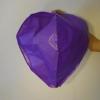
Hot Air Balloon
Source Institutions
In this activity, learners build a hot air balloon using just a few sheets of tissue paper and a hair dryer.
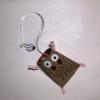
Toad Toy
Source Institutions
In this activity, the learner will explore hand eye coordination while using a variation of the ball and cup game.

Hand Spin Helicopter
Source Institutions
In this activity, learners build helicopters and launchers using wooden dowels and scrap paper. Use this activity to explore rotational motion and kinetic and potential energy.
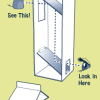
Eye Spy
Source Institutions
This fun activity uses simple materials such as milk cartons and mirrors to introduce the ideas of optics and visual perception.

Ramp Racers
Source Institutions
In this activity about friction and gravity (page seven of the pdf), learners use toy racing cars to explore how the two forces affect the motion of objects.
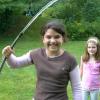
Gravity Fountains
Source Institutions
This activity (located on page 3 of the PDF under GPS: Glaciers Activity) is a full inquiry investigation into the forces of gravity and air pressure.

Action Figure
Source Institutions
In this project, students explore how levers work, by making a puppet with moving limbs.

Zipline
Source Institutions
In this design activity, learners create a vehicle that can transport a load, like a favorite toy or as a recycled object, from the top of a zipline to the bottom using only gravity.
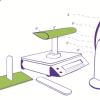
Airplane Wing Investigation
Source Institutions
This activity (located on page 3 of the PDF under GPS: Balloon Fiesta Activity) is a full inquiry investigation into Bernoulli’s principle and airplane wings.
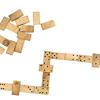
Domino Trains
Source Institutions
In this activity, learners practice matching and subitizing as they create the longest domino train possible.

Thaumatrope
Source Institutions
In this activity, learners make an optical illusion toy from the 1800s to explore persistence of vision.
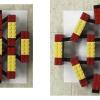
Exploring the Nanoworld with LEGO Bricks: Structure-Property Relationships at the Nanoscale
Source Institutions
In this activity (pages 32-41), learners learn how the atomic and molecular arrangement of matter are related to physical properties.

3D-tection: Trying to Fit In
Source Institutions
In this activity, learners explore how molecules must fit together, like a lock and key, in order to identify each other and initiate a new function as a combined unit.

Engineering Ups and Downs
Source Institutions
In this activity, learners explore the engineering and principles behind working elevators.
